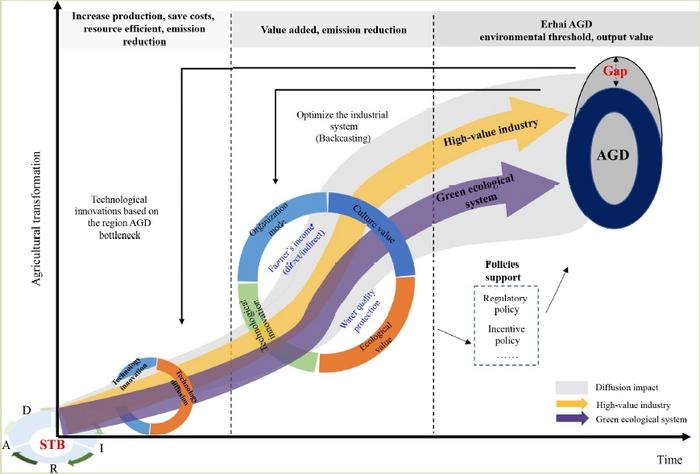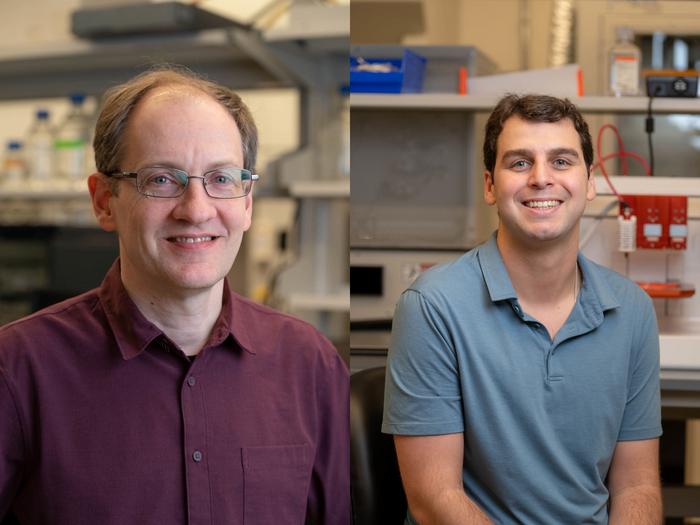Jefferson Lab hosts International Computing in High Energy and Nuclear Physics Conference
NEWPORT NEWS, VA – Experts in high-performance computing and data management are gathering in Norfolk next week for the 26th International Conference on Computing in High Energy and Nuclear Physics (CHEP2023). Held approximately every 18 months, this high-impact conference will be held at the Norfolk Marriott Waterside in Norfolk, Va., May 8-12. CHEP2023 is hosted […]

NEWPORT NEWS, VA – Experts in high-performance computing and data management are gathering in Norfolk next week for the 26th International Conference on Computing in High Energy and Nuclear Physics (CHEP2023). Held approximately every 18 months, this high-impact conference will be held at the Norfolk Marriott Waterside in Norfolk, Va., May 8-12. CHEP2023 is hosted by the U.S. Department of Energy’s Thomas Jefferson National Accelerator Facility in nearby Newport News, Va. This is the first in-person CHEP conference to be held since 2019.

Credit: DOE’s Jefferson Lab
NEWPORT NEWS, VA – Experts in high-performance computing and data management are gathering in Norfolk next week for the 26th International Conference on Computing in High Energy and Nuclear Physics (CHEP2023). Held approximately every 18 months, this high-impact conference will be held at the Norfolk Marriott Waterside in Norfolk, Va., May 8-12. CHEP2023 is hosted by the U.S. Department of Energy’s Thomas Jefferson National Accelerator Facility in nearby Newport News, Va. This is the first in-person CHEP conference to be held since 2019.
Science is driven by data. As research has progressed, so has the sheer volume of scientific data. The CHEP2023 conference will host more than 500 top computational scientists, data scientists, experimentalists and data center managers as they address the computing, networking and software issues for the world’s leading data‐intensive science experiments.
Conference attendees will be welcomed to Virginia by Representative Robert C. “Bobby” Scott (VA-03), who represents the congressional district that includes Jefferson Lab and the conference venue. Old Dominion University Dean of the College of Sciences and Professor of Physics Gail Dodge, Jefferson Lab Director Stuart Henderson, and Jefferson Lab Associate Director of the Computational Sciences and Technology Division and Chief Information Officer Amber Boehnlein will also welcome attendees to these discussions at the intersection of physics and computing.
The CHEP conferences highlight key trends, challenges and solutions in computing as it applies to research in nuclear and high energy physics. This edition of the conference will place special emphasis on high-performance data organization, management and access, a topic of interest and relevance throughout the scientific community.
CHEP2023 features twelve parallel session tracks, where attendees will discuss such topics as: online and offline computing, data organization, software engineering, analysis tools, AI & machine learning, exascale science and quantum computing. The conference will also feature a special workforce development roundtable with speakers who are building an equitable STEM workforce for the future through mentorship programs that promote STEM education for students of all levels.
The CHEP conference location rotates among the Americas, Asia and Europe. It is typically held every 18 months. This is the first in-person CHEP conference to be held since 2019.
-end-
Jefferson Science Associates, LLC, manages and operates the Thomas Jefferson National Accelerator Facility, or Jefferson Lab, for the U.S. Department of Energy’s Office of Science. JSA is a wholly owned subsidiary of the Southeastern Universities Research Association, Inc. (SURA).
DOE’s Office of Science is the single largest supporter of basic research in the physical sciences in the United States and is working to address some of the most pressing challenges of our time. For more information, visit https://energy.gov/science
What's Your Reaction?

































